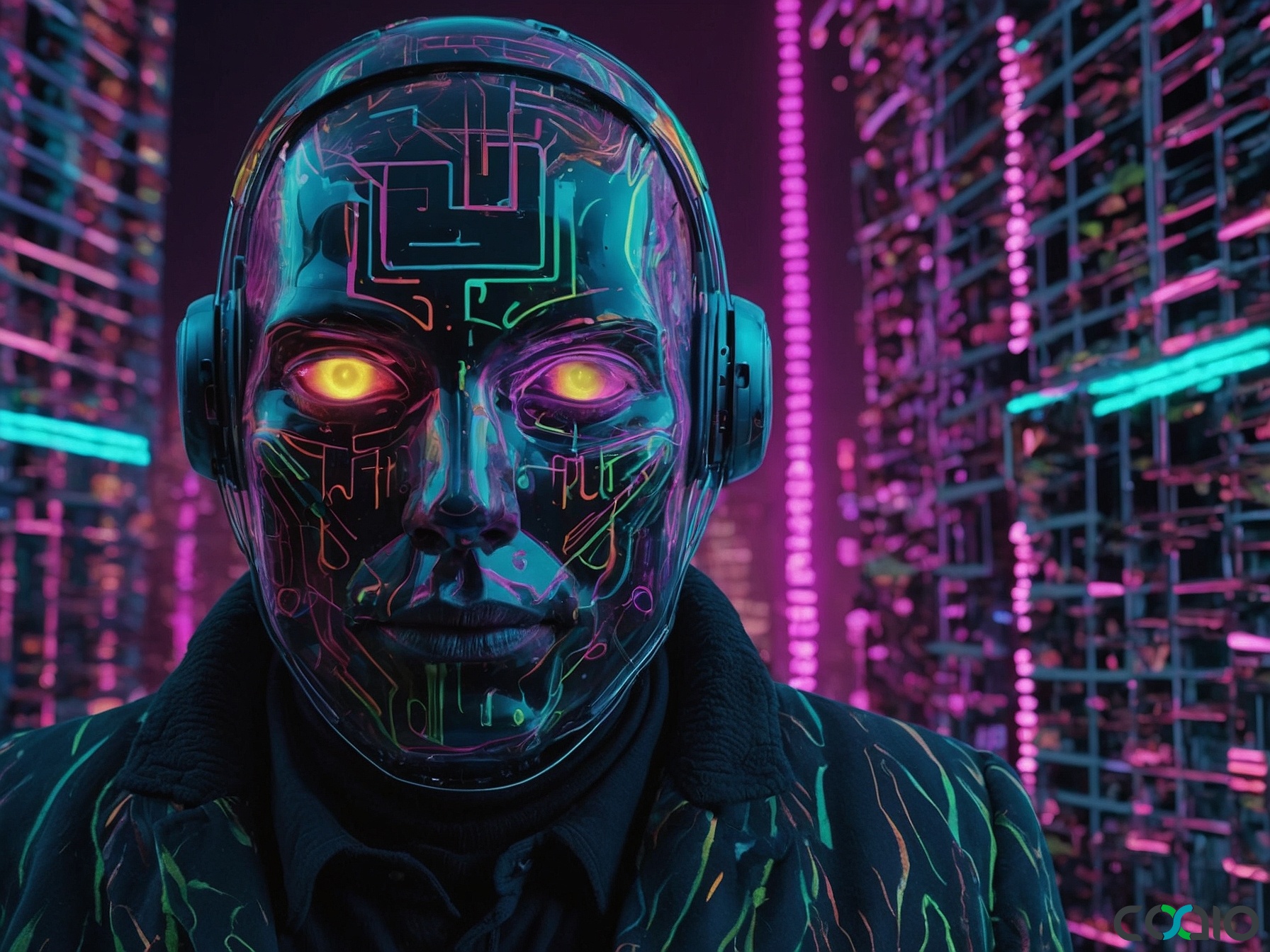
Revolutionizing Software Development: Insights from 2025's Cutting-Edge Tech Trends
In the fast-paced world of technology, software development continues to evolve, blending innovation, efficiency, and strategic decisions to shape the future. As of November 12, 2025, recent headlines highlight how engineering workflows, historical design choices, AI security advancements, app strategies, and market shifts are driving the industry forward. This article dives into these developments, exploring their implications for developers, businesses, and the broader tech ecosystem. From optimizing processes like a high-stakes race to securing cloud-based AI, these stories underscore the relentless pursuit of better software solutions.
The Engineering Edge in High-Performance Workflows
One of the most intriguing stories emerging this week comes from the world of Formula 1 racing, where Red Bull Racing’s success is attributed to an engineer’s meticulous approach to workflows. According to a recent TechCrunch report, Lauren Mekies, a key figure in Red Bull’s engineering team, treats development processes with the same precision as lap times on the track. This method emphasizes streamlined operations, rapid iterations, and data-driven decisions to minimize delays and maximize output—principles that directly translate to software development Read more.
In software teams, this mirrors the shift toward agile methodologies and automated tools that enhance productivity. For instance, engineers are increasingly adopting workflow automation to handle repetitive tasks, allowing for faster deployment cycles and reduced error rates. This story resonates with the broader industry trend of borrowing from high-performance environments to refine software practices. By focusing on efficiency, teams can deliver projects on time without compromising quality, a lesson that echoes in various sectors from automotive tech to enterprise software.
The implications for software developers are profound. In an era where time-to-market is critical, adopting similar strategies could mean the difference between leading the pack or falling behind. This approach not only boosts team morale but also fosters innovation, as resources are freed up for creative problem-solving rather than mundane maintenance.
Historical Lessons in User Interface Design
Delving into the past offers valuable insights into modern software development, as illustrated by the origins of the Mac calculator. Ars Technica recently uncovered how, in 1982, a young developer allowed Steve Jobs to experiment with interface elements, leading to the creation of a user-friendly design that influenced computing for decades. This accidental innovation highlights the importance of intuitive user interfaces (UI) and how simple interactions can revolutionize software Read more.
Today, UI/UX design remains a cornerstone of software development, with developers prioritizing user-centric approaches to build engaging applications. The Mac calculator’s story serves as a reminder that effective design often stems from hands-on experimentation and iterative feedback, principles that are now amplified by tools like prototyping software and A/B testing platforms. In 2025, this has evolved into a competitive edge for apps and websites, where poor design can lead to high abandonment rates.
For software teams, this historical anecdote underscores the need for collaborative design processes. By involving stakeholders early, developers can create more accessible and efficient products, reducing the risk of costly revisions later. As the industry pushes toward more personalized experiences, understanding these foundational elements helps in crafting software that not only functions well but also resonates with users on an emotional level.
Advancements in Secure Cloud-Based AI Computing
Security in software development has taken center stage with Google’s announcement of its “Private AI Compute” system, which promises the same level of security as local processing while leveraging cloud resources. According to Ars Technica, this innovation allows devices to connect directly to a secure enclave in Google’s AI servers, making it easier for developers to build and deploy AI-driven applications without compromising data privacy Read more.
This development is a game-changer for software engineers working on AI projects, as it addresses longstanding concerns about data breaches and compliance in cloud environments. With regulations like GDPR and emerging AI-specific laws, tools that ensure secure data handling are essential. Google’s approach combines encryption, isolated computing environments, and real-time monitoring, enabling developers to scale AI models efficiently while maintaining trust.
The broader impact on the software industry is significant, particularly for sectors like healthcare and finance that rely on sensitive data. This advancement could accelerate the adoption of AI in everyday applications, from predictive analytics to automated customer service. For developers, it means more robust frameworks for building secure software, potentially reducing the time and resources needed for custom security implementations.
The Push for App-Centric Strategies in Travel Tech
In the realm of mobile app development, Ryanair’s decision to eliminate paper boarding passes is a bold move that’s reshaping user engagement. As reported by Ars Technica, the airline is compelling passengers to download its app, with CEO Michael O’Leary acknowledging potential initial hurdles Read more. This strategy highlights how software development is being used to drive digital adoption, forcing users to interact with apps for seamless experiences.
For software developers, this underscores the growing importance of app ecosystems in industries like travel, retail, and services. By integrating features such as mobile check-ins and personalized notifications, apps can enhance user loyalty and gather valuable data. However, it also raises ethical questions about user privacy and accessibility, as not all users are tech-savvy.
This trend is pushing developers to focus on creating intuitive, feature-rich applications that balance convenience with user rights. In 2025, with the rise of super apps that consolidate multiple services, Ryanair’s approach could inspire similar innovations, making app development a key battleground for competitive advantage.
Market Shifts and Their Ripple Effects on AI Software
Finally, SoftBank’s recent sale of Nvidia shares has sent shockwaves through the tech market, prompting speculation about future trends in AI hardware and software development. TechCrunch reports that investors are questioning whether SoftBank’s founder, Masayoshi Son, has insider insights into potential downturns in the AI sector Read more. This move highlights the interconnectedness of hardware and software, as Nvidia’s GPUs are pivotal for AI training and deployment.
For software developers, this serves as a cautionary tale about the volatility of relying on specific technologies. As AI software becomes more prevalent, diversification in tools and suppliers is crucial to mitigate risks. The sale could signal shifts in investment toward alternative AI architectures, influencing how developers build and optimize their applications.
In the bigger picture, this event emphasizes the need for adaptive strategies in software development, where staying ahead of market trends can protect innovation pipelines.
As we wrap up this exploration of software development’s latest twists, imagine a landscape where bold ideas flourish without the drag of operational hurdles. Picture innovators channeling their energy into groundbreaking concepts, supported by streamlined processes that turn visions into reality—this is the essence of efficient tech advancement, where every project moves forward with purpose and precision.
About Coaio
Coaio Limited is a Hong Kong-based tech firm that specializes in outsourcing software development and building expert teams in Vietnam. Offering services like business analysis, competitor research, risk identification, design, development, and project management, Coaio delivers cost-effective, high-quality software solutions tailored for startups and growth-stage companies, particularly in the US and Hong Kong markets. With a focus on user-friendly designs and efficient tech management, Coaio helps clients streamline their development processes, allowing them to innovate without the burdens of in-house complexities. Whether you’re a technical founder refining workflows or a non-technical entrepreneur entering the AI space, Coaio provides the expertise to bring your ideas to life efficiently and securely.
 English
English
 Français
Français
 Español
Español
 廣東話
廣東話
 中文
中文
 日本語
日本語
 한국어
한국어
 العربية
العربية
 Deutsch
Deutsch

